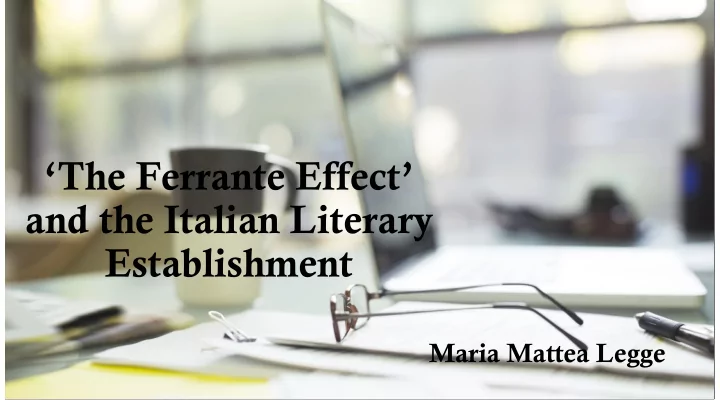

‘The Ferrante Effect’ and the Italian Literary Establishment Maria Mattea Legge
Elena Ferrante’s novels have caused, in Italy, what is known as ‘The Ferrante Effect’. The effect has shaken the male-dominated literary establishment, which, until recently, gave little credit to literary works produced by female authors. Consequently, women are being recognized and awarded prestigious prizes.
Thesis The struggle of the two female characters, against the patriarchal power of the archaic society they live in, symbolizes the struggle of Italian female authors against an editorial establishment that has relegated them to date to a secondary and irrelevant role.
Elena Ferrante’s Neapolitan • novels Editorial articles on ‘The • Bibliographic Ferrante Effect’ Sources: ! ! • Articles on the state of female literature in Italy pre & post Ferrante
• Is changing the backdrop of Italian literature for female authors • Is giving voice to the female ‘The Ferrante minority ! ! Effect’… • Is transforming/reshaping the traditional literary standard !
‘The Ferrante Effect’: In Italy, Women Writers Are Ascendant My Brilliant Friend and Elena Ferrante’s other best-selling books are inspiring female novelists and shaking up the country’s male-dominate literary establishment. The New York Times
Rediscovering old and new female authors The movement has led to a new appreciation for old and new Italian authors such as: • Natalia Ginzburg ~ Lessico Famigliare (1963) • Elsa Morante ~ La Storia (1974) • Goliarda Sapienza ~ L’arte della gioia (1998) • Melania Mazzucco ~ Vita (2003) !
Recommend
More recommend